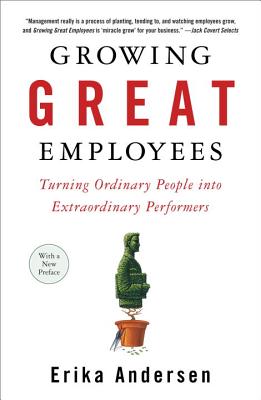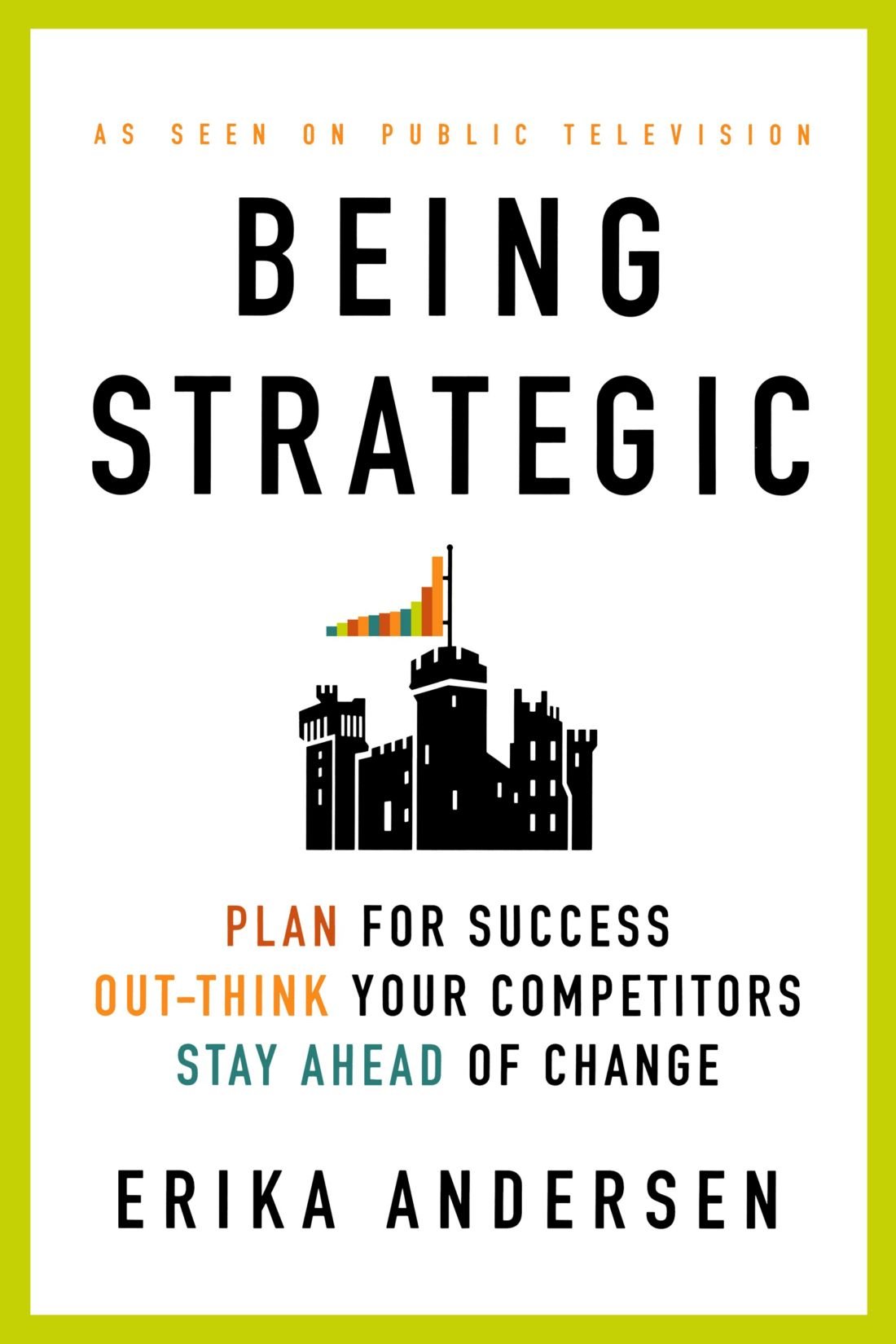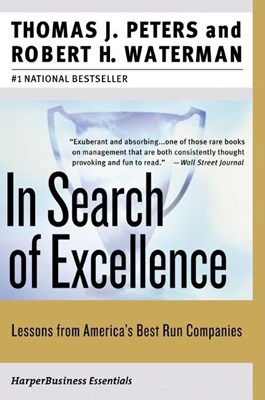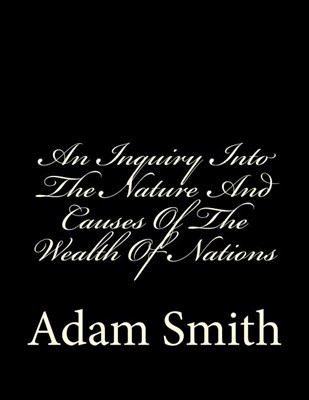In the Books - Off to the Printers III
December 28, 2009
Our third installment of articles from past issues of In the Books, our annual review of the finest business books, comes from the indomitable spirit of Erika Andersen, founder of Proteus International. Erika is a friend of the company, and I've always thought of her as our cool and world-wise aunt. She is one of those people that teaches you something about yourself every time you meet her and, lucky for us, she does so for organizations as well.
 Our third installment of articles from past issues of In the Books, our annual review of the finest business books, comes from the indomitable spirit of Erika Andersen, founder of Proteus International. Erika is a friend of the company, and I've always thought of her as our cool and world-wise aunt. She is one of those people that teaches you something about yourself every time you meet her and, lucky for us, she does so for organizations as well. If you need to better understand your organization and the folks that make it run—and, no offense, but you probably do—you can do no better than call on Erika Andersen. If you would like to learn more, check out her two ChangeThis manifestos or her two books, Growing Great Employees and Being Strategic.
The piece below is from our first annual review, released two years ago, and is about our favorite topic—business books!
Our third installment of articles from past issues of In the Books, our annual review of the finest business books, comes from the indomitable spirit of Erika Andersen, founder of Proteus International. Erika is a friend of the company, and I've always thought of her as our cool and world-wise aunt. She is one of those people that teaches you something about yourself every time you meet her and, lucky for us, she does so for organizations as well. If you need to better understand your organization and the folks that make it run—and, no offense, but you probably do—you can do no better than call on Erika Andersen. If you would like to learn more, check out her two ChangeThis manifestos or her two books, Growing Great Employees and Being Strategic.
The piece below is from our first annual review, released two years ago, and is about our favorite topic—business books!
Why We Love Business Books More Than Ever BY ERIKA ANDERSEN Around 1500, a guy named Machievelli wrote a book called Il Principe. It could be argued that this tough-minded little volume was the first classic business book of the western world. It was a wild time: he was advising various warring Popes and secular rulers—the Jack Welches and Sumner Redstones of his time—and Machiavelli offered advice he thought would be most helpful to them in consolidating their power and creating thriving and profitable governments. Though it's now mostly read as a cautionary tale, an example of how NOT to lead, hundreds of generations of leaders have absorbed its lessons, and the business book was born. The next few hundred years of western civilization (this phrase always reminds me of Gandhi's response as to his view of western civilization: "I think it would be a good idea," he said...but I digress) produced a few other volumes of political and economic wisdom. In 1609, for instance, Hugo Grotius published Mare Liberum (The Free Sea), which helped to establish the foundations of international law by formulating the new principle that the sea was international territory and all nations should be free to use it for seafaring trade. Adam Smith's An Inquiry into the Nature and Causes of the Wealth of Nations, published in 1776, was one of the earliest attempts to systematically study the development of industry and commerce in Europe, and offered rationales for free trade, capitalism and libertarianism. It seemed that only a handful of people felt compelled to share their thoughts about business, and that a slightly larger handful read them. It wasn't until the 20th century that the business book began to emerge as an actual category. In the early 1900s, two books on business became standards in the libraries of America's captains of industry: Henry Ford's My Life and Work, and a book by a man named Henri Fayol, called General and Industrial Management. They offered very different opinions on business and management (Henry Ford deeply distrusted managers, though he treated his front line workers much better than most of his contemporaries, while Fayol talked about management as one of the six key elements of business success), but both focused on providing personal insights into how business should be done. Through the '40s, '50s, '60s and '70s, the number of books published about business gradually increased. Still, by today's standards, business books had a relatively modest readership: in 1975, about 300 new business book titles were published in the US, with overall sales for the business category of just over a million volumes. Then in the early '80s, the whole business of business books changed—quite suddenly and dramatically: the bellwether book of this change was Tom Peters and Robert Waterman's In Search of Excellence, which became the first bona fide business best seller. And over the past 25 years, the business book category has literally exploded: in 2006, almost 11,000 new business books were ublished in the U.S., with total business book sales of over $800,000,000. Why this ever-increasing appetite for business books? THERE'S GOLD IN THEM THAR HILLS Part of the explanation, I believe, can be found in the current American mythology that business is the best and most reliable road to fame, fortune and happiness. In fact, this mythology seems to have largely replaced other American mythologies about achieving success, such as "the overnight star," "marrying rich," "being plucked by fate from the chorus line (or assembly line)," "virtue rewarded" and (my personal favorite) "persisting through terrible tribulations and being uplifted by some extremely unlikely deus ex machina." Not that these things don't still happen (occasionally), or that people don't pine for them, but I'll bet if you talked to ten college students who want to become wealthy, nine would say they're planning to do it by starting or getting involved in some sort of lucrative business venture. This popular mythology about business, it seems to me, is an amalgam of a number of elements. First, there's the core American belief in the efficacy of hard work and the possibility of raising oneself up by one's own bootstraps. This has formed the basis of how we see ourselves since the very beginning of our nation: the idea that in America, ancestry is not destiny, and that people can become what they envision. Pushing westward, building the railroads, inventing, creating, refining: we have always believed in commerce as the great leveler of society. Second, there is the assumption spawned by the Internet (the late-'90s bust notwithstanding) that if you just find/create the right product/service/idea at the right time and offer it online in the right way, you can achieve crazy-level financial success. Look at the Google guys. For most of us, there's still enough mystery and magic about how the web actually works to enable us to imagine that any business having to do with new media might instantly result in thousands of rabbits from hundreds of hats. Finally, we may no longer think that "greed is good" (in the words of Gorden Gekko, the creepy Michael Douglas character from Wall Street)—or, at least, most people don't say it out loud—but the legacy of the eighties is this: that young, Bright-eyed men and women can aspire to do well in business without feeling like soulless sell-outs. So, if we as a nation believe that there is both physical and psychic gold to be had by pursuing business, what better way to find out where to dig than by reading books that provide the needed maps? Unlike previous generations, who had to actually get out and do it (make your way to California, apprentice yourself to a bootmaker, sign up for the next clipper ship to China), we can sit in the comfort of our living rooms and look over the shoulders of those who've done it before us, trying to extract the lessons we'll need to do it ourselves...or at least to let us dream—to convince us that we could do it if we really wanted to. THE CELEBRIFICATION OF BUSINESS LEADERS If you scan the business book shelves of any Barnes and Noble or Borders, you'll see a lot more volumes with faces on them than in years past. Business books used to be serious—if boring—tomes in strong colors with impressive typefaces. Now, more often than not, the front cover shows a slick photo of Donald, Martha, Lee, Carly, Jack or whoever. What gives? It seems to me the American fascination with celebrity has played a large part in boosting business book sales. As a culture, we seem endlessly intrigued with people who have lives of privilege and wealth, and over the past decade or so, we've turned some of our attention away from movie stars, athletes and royalty, and trained it on business tycoons. In fact, it seems that no matter what these celebrity business people are saying (or, in some cases, preaching) in their books, the real draw is that face on the cover. When I was looking for an agent for my first book a few years ago, one of the people I spoke to—a woman who is agent to a few of these very mega-executives—told me that while my book was very solid and compelling, I didn't have a "big enough platform." A novice in these matters at the time, I asked her what she meant. "Well, to be quite blunt," she replied, "you're not famous enough." So, it's not so much what these folks have accomplished or the clarity of their wisdom that sells their books—although that is, in some cases, very impressive—it's quite simply that they're well-known and therefore interesting. People buy books by "famous" business people for basically the same reason other people buy Entertainment Weekly or listen to Larry King—they want to find out more about people whose lives they find intriguing. DON'T TRY THIS AT HOME A few months back, when I was just beginning to think about writing this article, I was out to dinner with my 19-year-old son, and I asked him why he thought there were so many more business books being bought these days. "It's the complexity of the undertaking," he replied. At my quizzical look, he continued, "Imagine some guy in the Korean war. All he thinks about is getting back home and starting an auto-body shop, or a pizzeria. And when he gets home, he does it: borrows some money from his dad or the bank, rents a space, buys some stuff and starts fixing cars or making pizza. If he works hard and does good work, he hires a couple of people. Gets married, sends his kids to college. The American dream: simple." I nodded. "Now, though, that guys' kids want to be portfolio analysts or music producers. It's much more complicated and shapeless. How do you do it? And they think, 'I bet there is a bunch of books about this.' And there is." I think he's absolutely right. And I'd expand it to include the complexity of everything—not just of the undertaking. People who want to start businesses today, who want to do well in their chosen careers, or who want to figure out how to choose a career are faced with orders of complexity that would boggle the mind of that unconfused Korean war vet. It seems to me this is the most important factor driving the exponential increase in the popularity of business books: the world—and the world of business—is a complicated place, and we want help figuring it out. We've always used books to explore and to learn. Books about history to explore the past and learn the lessons of others' mistakes; books about travel to explore distant places and learn about other cultures; books of fiction to explore invented worlds and learn about others' experiences. Now, as we rush headlong into the 21st century, business books allow us to explore all the emerging worlds of commerce, invention and growth, and teach us how to navigate through those worlds.





